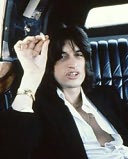- Shopping Bag ( 0 items )
From Barnes & Noble
Until now, Aerosmith lead guitarist Joe Perry has followed the advice of one of his own early songs: "Let the Music Do the Talking." Now he breaks that implicit vow with an autobiography, to which he offers this succinct summary: "the loner's story, the band's story, the recovery story, the cult story, the love story, the success story, the failure story, the rebirth story, the re-destruction story, the post-destructive rebirth story." That just about covers it all, but you will want to follow him through that story to get the full, remarkably candid and kind account of his astonishing immigrant's son story.





Overview
“An insightful and harrowing roller coaster ride through the career of one of rock and roll’s greatest guitarists. Strap yourself in.” —Slash
“Rocking Joe Perry ‘rocks’ again!” —Jimmy Page
Before the platinum records or the Super Bowl half-time show or the Rock and Roll Hall of Fame, Joe Perry was a boy growing up in small-town Massachusetts. He idolized Jacques Cousteau and built his own diving rig that he used to explore a local lake. He dreamed of becoming a marine biologist. But Perry’s neighbors had teenage ...